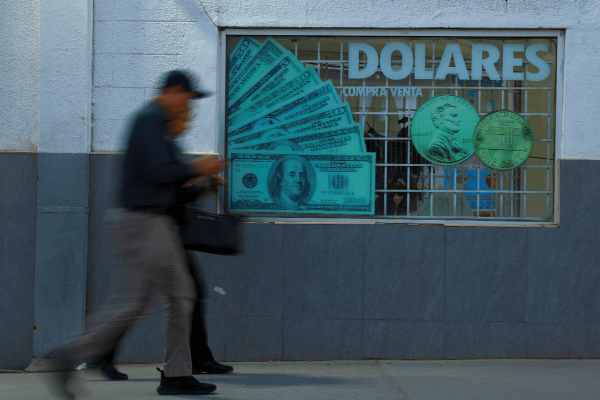Y’all, I hate to say this, but Election Day will not be the end of our electoral uncertainty. The odds of us knowing the presidential election’s outcome when we go to sleep on Nov. 5 will be slim to none.
But this isn’t because our system is broken or fragile; our system has lots of checks and balances to ensure every vote is counted — and that takes time. In many states, the margins are thin, and it will take time to count all the ballots, making it challenging for media outlets to unofficially “call” the race as they have in past years. And even if the race is unofficially called, it will take awhile for the official Electoral College process to unfold, including mechanisms to audit and (when necessary) recount ballots, then certify the results. Since the 2020 election, this process has faced intense scrutiny, including concerns that some local election officials might refuse to certify the results in an effort to reject the outcome of the election, causing chaos and confusion before Inauguration Day. But despite disinformation about the integrity of this process and voter suppression tactics, we should feel confident that our electoral process will stand strong.
If you’re like me, you’re eager for this whole election season to end. But it’s better for our nervous systems to consider Nov. 5 the last day to cast our votes instead of the end of the election period.
Many of us have been working hard for months to shore up the freedom to vote for all citizens. We have knocked on doors, made calls to strangers, signed petitions, watched the news, created content, and equipped leaders on civic engagement strategies, hoping we will get the opportunity to rest after Election Day. For months, we have given our energy, sweat, and tears to ensure our communities are informed and equipped for this election. It seems like it will never end.
But here’s the good part: We don’t have to wait until it’s over to get some rest. Friends, prioritizing rest and beauty is essential for sustaining our long-term commitment to justice and advocacy — including our commitment to free and fair elections.
Rest isn’t quitting
There’s a critical distinction between resting and quitting. Resting is a strategic way to refuel and maintain clarity for ongoing work, whereas quitting means abandoning the strategy altogether. Rest is a pause, a moment of reprieve, a timeout, a seventh-inning stretch. The psalmists told us to pause — selah — when reading the psalms. On a long bike ride, you rest to catch your breath.
In contrast, quitting is ceasing forward motion. Quitting is a nonstrategic paralysis that kills momentum and feeds anxiety. Quitting means stopping your bike ride midway and calling an Uber to take you home. The scriptures tell us that Jesus rested and prayed — but he didn’t stop the work. No, he rested strategically to refuel and strengthen himself for the days ahead.
Between now and when the next U.S. president will be inaugurated on Jan. 20, there are some important milestones to ensure the vote is accurately counted and certified. As we approach and hopefully meet these milestones — including local and state certification deadlines in December, we’ll all need to create patterns of rest and self-care while being prepared to mobilize and use our voices. There will be moments when our collective voices and presence will be needed as we move through this civic engagement process.
In a presentation my colleague attended recently, psychotherapist and artist Nat Vikitsreth used the analogy of “The Hokey Pokey” to illustrate the need to both put “our whole selves in” to the work of justice as well as the equal need to take “our whole selves out” to pause and reset, creating rhythms of rest and action. We cannot wait for a more opportune time to rest because that time might never arrive. Rest should not be a privilege for some. Rest is a right.
Nap Ministry founder Tricia Hersey encourages us to think beyond the impulse to work tirelessly to exhaustion, recognizing rest as essential for long-term commitment to justice work. Throughout her writing and public teaching, she frames rest as an active, transformative practice rather than a passive or unproductive state. Without adequate rest, prolonged stress will harm us physically and emotionally, leading to burnout before the necessary work is complete. Resting is a strategic tool, not an act of surrender.
Listen to your alarms
Rest is a powerful and essential tool we often overlook when overwhelmed. God has gifted us with an incredible nervous system that alerts us when we are taking in too many stimuli. For example, if you’ve ever caught yourself doomscrolling and feeling anxious about the state of our democracy, you may have experienced heart palpitations, insomnia, headaches, difficulty focusing, or increased irritability. These are all signs of being overwhelmed; our bodies will tell us when they need a break.
Unfortunately, many of us — myself included —have learned to ignore these alarms inside us. When I worked as a nurse, we called this alarm fatigue, or the subconscious tendency to tune out lower-level monitor alarms when they go off repetitively in error, such as when a patient shifts in bed, or a heart rate monitor becomes loose. In our daily lives, we might ignore these alarms because we’re on a deadline, or because we have this passion for helping people in need that often results in us burning the candle on both ends. In both nursing and our daily lives, when we ignore the minor alarms, we train our nervous system to ignore all alarms, including the critical ones telling us to rest. We then cannot recognize when something is wrong. This long election season has created the perfect environment for alarm fatigue.
Prolonged stress takes a physical toll on our bodies, keeping us in a constant state of heightened awareness — what we call “fight-or-flight” mode. During this state, our brain releases chemicals like adrenaline, dopamine, and cortisol to help us react quickly. Unfortunately, keeping these chemical levels high for too long harms our bodily functions and well-being. We get stuck in a vicious cycle that can increase anxiety, depression, blood pressure, and heart rate.
The good news is that God has given us tools to help our bodies reset — tools we can’t buy on Amazon. We can stop this vicious cycle by including cycles of rest in our daily lives, especially as we hold on just a little while longer during the uncertainty after Election Day.
Strategies to reset
Resetting our nervous system doesn’t mean we must take a two-week vacation to Iceland to experience the geothermal hot springs (although, hey, it wouldn’t hurt). Rest also means more than just taking a nap for 30 minutes. Rest can mean practicing breathwork for a minute as you shift tasks. It can look like creating boundaries, allowing for a few minutes of buffer between online meetings. Rest can look like looking out your window at the trees across the street. In the words of musical artist George Clinton, rest can look like dancing “your way out of your constrictions.” Rest can be whatever you need to shake off the feelings of dread that this election has created.
Did you know that the simple act of slow, deep breathing for a minute can decrease the cortisol in our brains that causes anxiety? We tend to hold our breath when stressed, which increases cortisol. Slow, deep breaths blow off carbon dioxide and increase the oxygen to our brains, which begins to regulate our nervous systems. Try it! There are apps like Calm and Headspace that can guide you in breathing.
Rest also includes prayer. Research has shown physiological benefits of worship, like lowered blood pressure and heart rate and improved mental health. Prayers of gratitude and thanksgiving go a long way during the day. It is easy to forget the most basic discipline of our faith when we move into a cycle of despair. Rituals of prayer, both in solitude and in community, help the soul rest in God’s amazing love.
Even though this eternal election cycle will extend into next year, we can create faithful rhythms of rest and action to do what we can to move the world toward God’s vision for us… NOW. This period will demand both our faithful engagement and intentional rituals of rest. Drawing from Hersey and others, we can view rest as a right, not a privilege, necessary for our resilience during this time.
Remember, rest isn’t giving up; it’s asserting our inherent dignity and creating spaces for healing, imagination, and joy. It affirms that our worth isn’t determined by output but by our existence as divine creations.
I invite you to incorporate rest into your life today. Consider:
- Setting boundaries with news and social media
- Taking a mindful walk or spending time in nature using your five senses
- Incorporating a one-minute pause of breathing and prayer as you work
- Organizing a rest day or prayer circle in your faith community
- Making room for impromptu dance breaks by having prepared playlists like this one.
Embracing rest allows us to sustain our work for a just world with resilience, hope, and clarity. By creating rhythms of engagement and rest in the next few months and beyond, we care for ourselves, resist oppressive systems of production, and model the rest that Jesus showed us.
We don’t know what the outcome of this election will be. We don’t know what the next days will bring. We do know that God wants the best for us. God is with us both in the doing and the resting. Make sure you do both.
Got something to say about what you're reading? We value your feedback!







